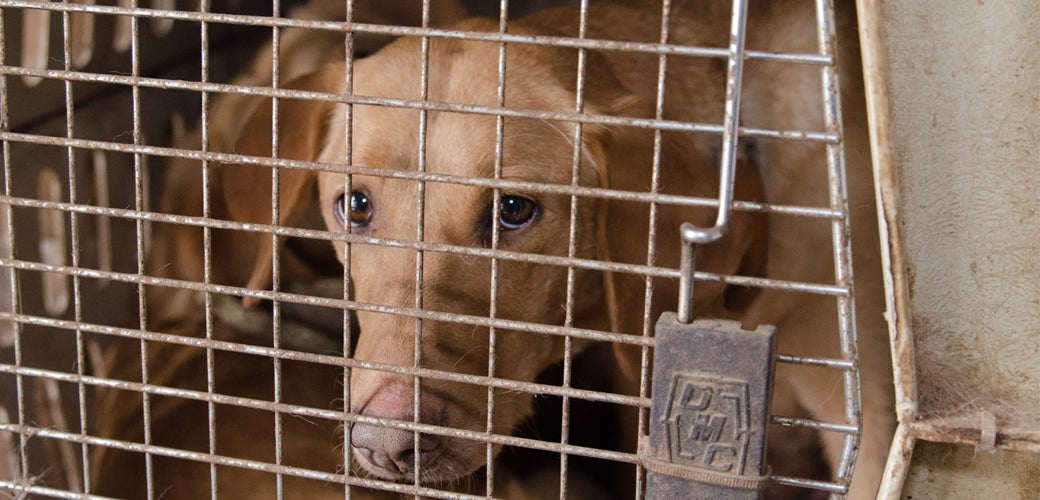
- On Wednesday, April 14, U.S. Department of Agriculture Secretary Tom Vilsack testified virtually before the Congressional subcommittee that determines funding levels for the USDA, including funding for important animal welfare programs.
- Members of Congress raised pressing animal welfare concerns—including enforcement issues regarding the Animal Welfare Act, the timeline for progress on animal welfare improvements under the National Organic Program and the need to reform conventional agriculture, including harmful factory farming.
- The ASPCA thanks the representatives who spoke out on these issues, including Appropriations Chair Rep. Rosa DeLauro (D-CT), Rep. Debbie Wasserman Schultz (D-FL) and Rep. Chellie Pingree (D-ME).
- We hope that Secretary Vilsack and the Biden administration will take these concerns seriously and take swift action to make needed reforms to animal welfare programs run by the USDA.
Yesterday, members of the House Agriculture Appropriations subcommittee discussed important animal welfare issues with U.S. Department of Agriculture (USDA) Secretary Tom Vilsack, including: concerns about the USDA’s enforcement of the Animal Welfare Act (AWA), the primary federal law that protects animals raised in commercial facilities such as puppy mills; the future of animal welfare standards for animals raised on organic farms; and the harms caused by factory farming, which have been highlighted during the pandemic.
For years, the ASPCA has been closely tracking the USDA’s disappointing practices under the Animal Welfare Act (AWA), including the agency’s failure to inform the public about changing protocols and its overall failure to enforce the AWA. The agency’s current practices allow cruel puppy breeders to continue to conduct business as usual, despite severe and repeated animal welfare violations. U.S. Rep. Debbie Wasserman Schultz (D-FL) raised a series of pointed questions about the department’s dysfunctional AWA licensing, inspection and enforcement program, urging Secretary Vilsack to commit to investigating its shortcomings and turning the program around. Specifically, she asked why the USDA does not know how many of the 5,620 site inspections it conducted in Fiscal Year 2020 occurred virtually, versus how many took place in person. Secretary Vilsack assured the committee that he would investigate the number of virtual inspections and seek to confirm that they were robust.
We thank Rep. Wasserman Schultz for raising this important issue and demanding answers from the new administration on how it will get this program back on track and ensure that animal protection is taken seriously.
Another issue raised during the hearing concerned the status of improvements to the USDA Organic Program for more humane animal housing, transportation and slaughter—which were rescinded by the previous administration despite overwhelming public support for such protections. U.S. Rep. Chellie Pingree (D-ME)—herself an organic farmer—asked Secretary Vilsack about the USDA’s timeline for moving these improvements forward. Currently, many consumers are purchasing (and paying more for) organic animal products under the mistaken belief that this label ensures animals have pasture access and other welfare-related benefits. Until the USDA moves forward with the Organic Livestock and Poultry Practices rule, companies will continue to abuse the current loopholes in the USDA Organic program and mislead consumers.
We appreciate Rep. Pingree’s persistence in urging the USDA to finalize and publish these regulations so that animals raised on organic farms have meaningful protections against industrialized conditions like crowding, barren environments, lack of fresh air and sunlight, and painful mutilations.
Finally, several members of Congress—including Appropriations Committee Chair Rosa DeLauro (D-CT)—highlighted the problems with our current agriculture system and the harm it inflicts on people, the environment and animals. Our current factory farm-based animal agriculture system gravely undermines animal welfare, presents serious public health risks, significantly contributes to climate change and devastates communities.
Consumers overwhelmingly agree—a recent survey [PDF] showed that there is already strong, bipartisan support for reforming industrial agriculture, with nearly 90% of respondents reporting being concerned about the harms of the industry. The ASPCA believes that we can build a better, more resilient farming system that is kinder to animals, people and the environment, and we will continue to advocate for important reforms.
You can make a difference by helping us advocate for these reforms. Please urge your legislators to support animal protections in the 2022 federal budget to ensure important animal welfare reforms to USDA programs.
Source: Read Full Article
